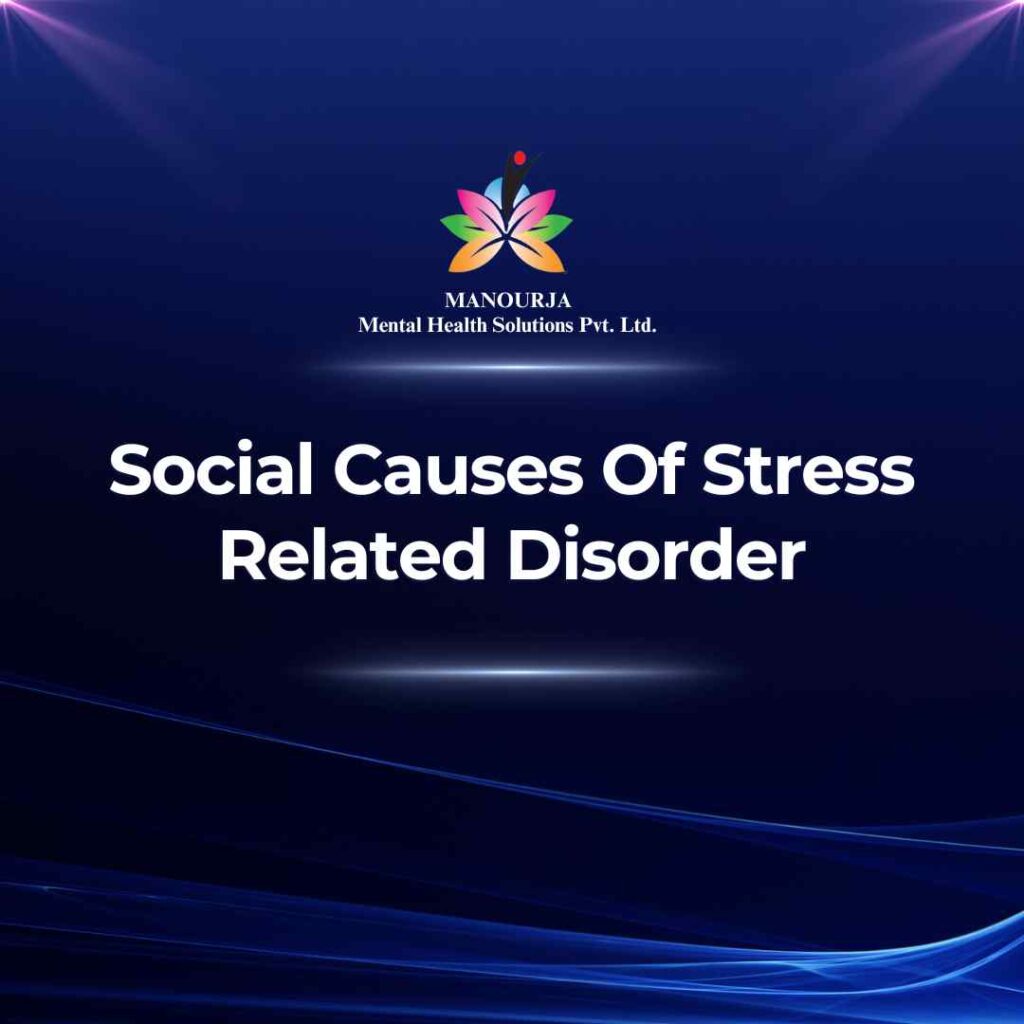Social Causes of Stress Related Disorder

Social causes of stress-related disorders encompass a range of factors in an individual’s environment and interpersonal relationships that can influence their mental health. These social factors can both trigger and exacerbate symptoms of stress-related disorders. Understanding these causes is crucial for identifying potential interventions and supports. Here are some key social causes:
- Family Dynamics: Stress within the family, such as ongoing conflicts, divorce, or the death of a loved one, can significantly contribute to the development of stress-related disorders. Additionally, growing up in a family environment characterized by high expectations, criticism, or lack of emotional support can predispose individuals to stress sensitivities.
- Social Isolation and Loneliness: Lack of a supportive social network can lead to feelings of isolation and loneliness, which are significant stressors and can increase the risk of stress-related disorders. Being socially isolated reduces the opportunities for emotional support and sharing of stress, which are critical for managing life’s challenges.
- Workplace Stress: High demands at work, job insecurity, poor work-life balance, and conflicts with coworkers or supervisors can be potent sources of stress. Chronic stress in the workplace can lead to burnout, depression, and anxiety, significantly impacting mental health.
- Economic Hardship: Financial stress, including chronic poverty, debt, or economic instability, can cause constant worry and strain, contributing to mental health issues. The stress of not being able to meet basic needs or fearing for one’s economic future can be profoundly destabilizing.
- Community and Societal Issues: Living in a community with high levels of violence, crime, or a lack of resources (such as healthcare, education, and recreational facilities) can contribute to chronic stress. Discrimination, whether based on race, gender, sexuality, or other attributes, can also be a significant source of stress and lead to stress-related disorders.
- Life Transitions and Major Events: Significant life changes such as moving to a new city, changing jobs, getting married, or having a child involve adjustments that can be stressful. Without adequate support, these transitions can overwhelm an individual’s ability to cope effectively.
- Traumatic Social Experiences: Experiences such as bullying, physical assault, or other forms of abuse are severe stressors that can have long-lasting effects on an individual’s mental health. The impact of these experiences can be particularly profound when they occur repeatedly or over an extended period.
Understanding and addressing these social factors are important in preventing and managing stress-related disorders. Interventions may include enhancing social support networks, stress management training, professional counseling, and community-based programs designed to reduce isolation and economic hardship. Addressing workplace stress through organizational changes and promoting inclusivity and respect within communities are also vital strategies for mitigating these social stressors.
At MANOURJA, we believe in the transformative power of counseling. Our experienced therapists offer a safe and supportive space where you can explore your thoughts, emotions, and challenges. Through personalized counselling sessions, we’ll work together to develop coping strategies, build resilience, and achieve lasting positive change. Discover the path to a healthier, happier you with MANOURJA counselling services.
MANOURJA Rehabilitation Services
At MANOURJA, we’re dedicated to helping you in rebuild your life, after difficult times. Our rehabilitation services focus on understanding what you need to move forward, whether you’re recovering from addiction, trauma, or any psychological – social challenges. We create personalized plans, that are all about helping you, regain your strength and find hope again. With a caring team by your side, you’ll have the support to make real progress and take steps toward a brighter, healthier future.
